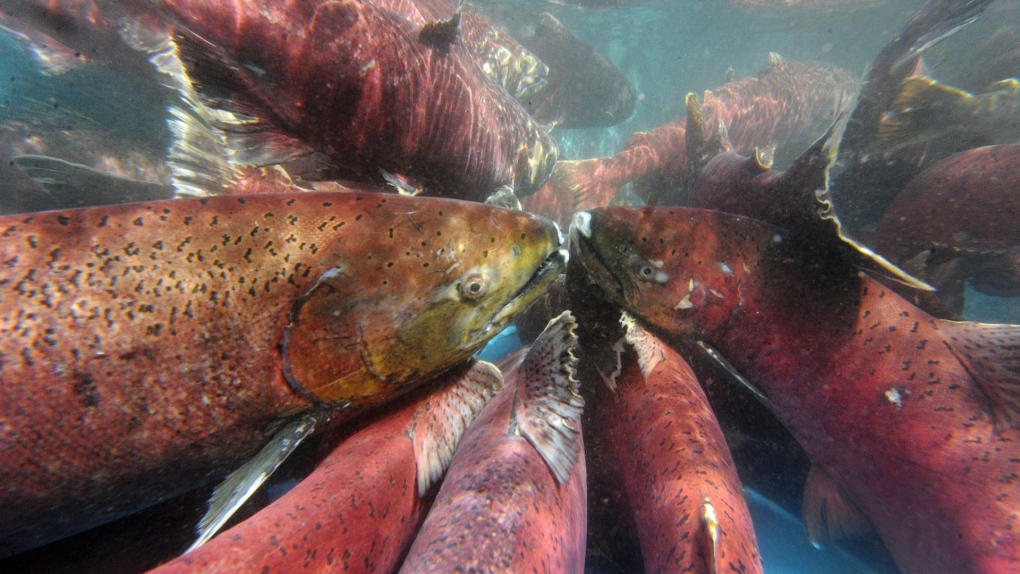
Canada and U.S. suspend all fishing for Canadian-origin Yukon River chinook salmon
CTV
Canada and the United States are suspending all fishing for Canadian-origin Yukon River chinook salmon for seven years in an attempt to protect the dwindling species.
Canada and the United States are suspending all fishing for Canadian-origin Yukon River chinook salmon for seven years in an attempt to protect the dwindling species.
The agreement covers the length of one life cycle of the fish, and recognizes that the "persistent decline of chinook salmon" has led to an inability to meet conservation objectives in both countries.
Dennis Zimmermann, the chair of the Yukon Salmon Subcommittee, an advisory body focused on the salmon, said the deal is a year in the making and means having a long-term plan to protect the fish, rather than deciding annually how much fishing would be allowed.
"(Chinook are) the lifeblood of the Yukon River. They're part of that woven cultural fabric that brought people together. I mean, communities reside on rivers because there was such an abundance of these large, mature, protein-rich chinook salmon," he said.
Zimmermann said those on the water have watched as the once-large and meaty fish, which travel thousands of kilometres to spawn in Yukon and northern B.C. rivers, have become smaller, more sickly and returned in fewer and fewer numbers.
A statement from Fisheries and Oceans Canada said that since the 1980s, the chinook population has declined to less than 10 per cent of its historical average of 150,000 adult salmon originating from the Canadian portion of the watershed.
It said less than one-third the minimum number of adult chinook salmon necessary to sustain the population have returned to their spawning grounds in Canada in recent years.











